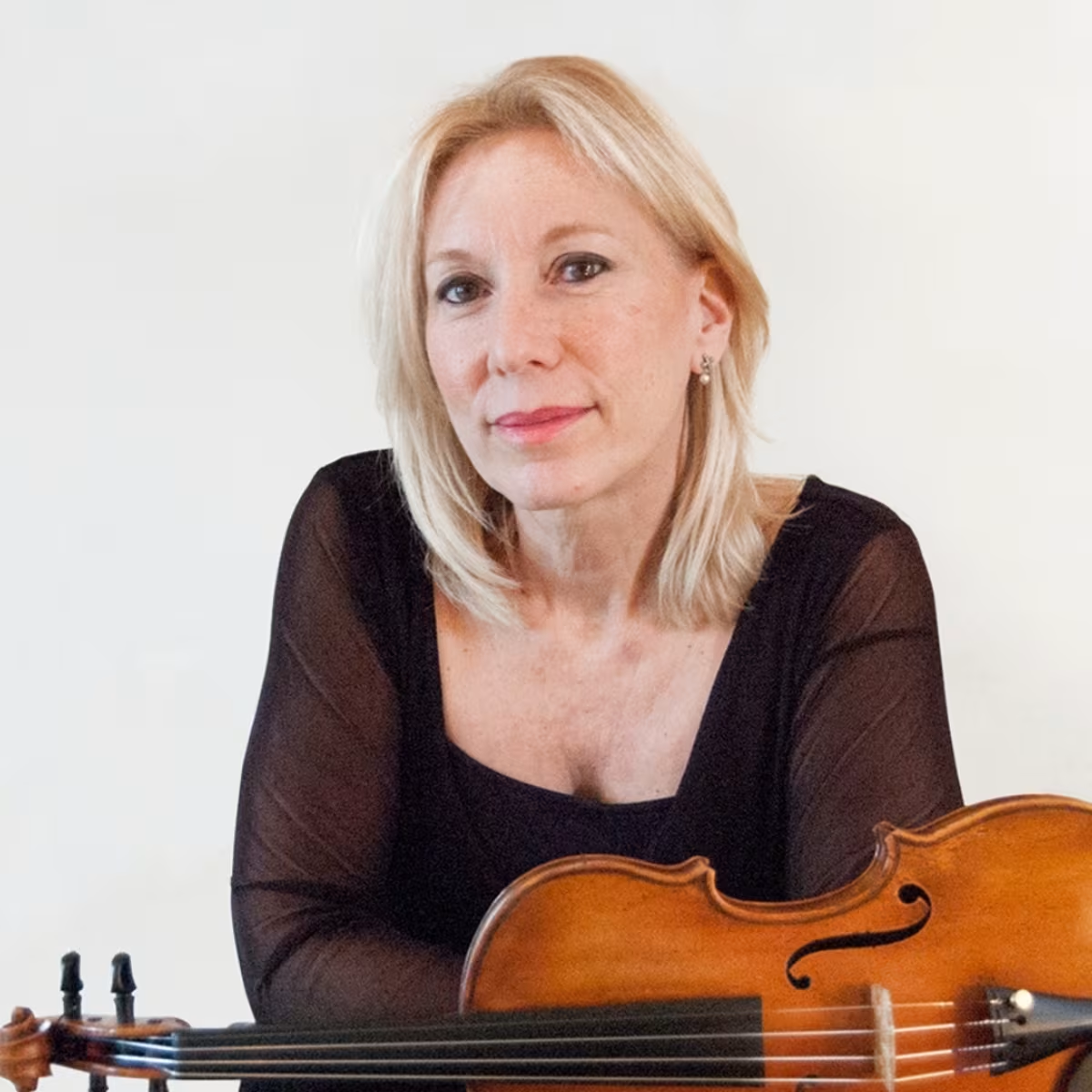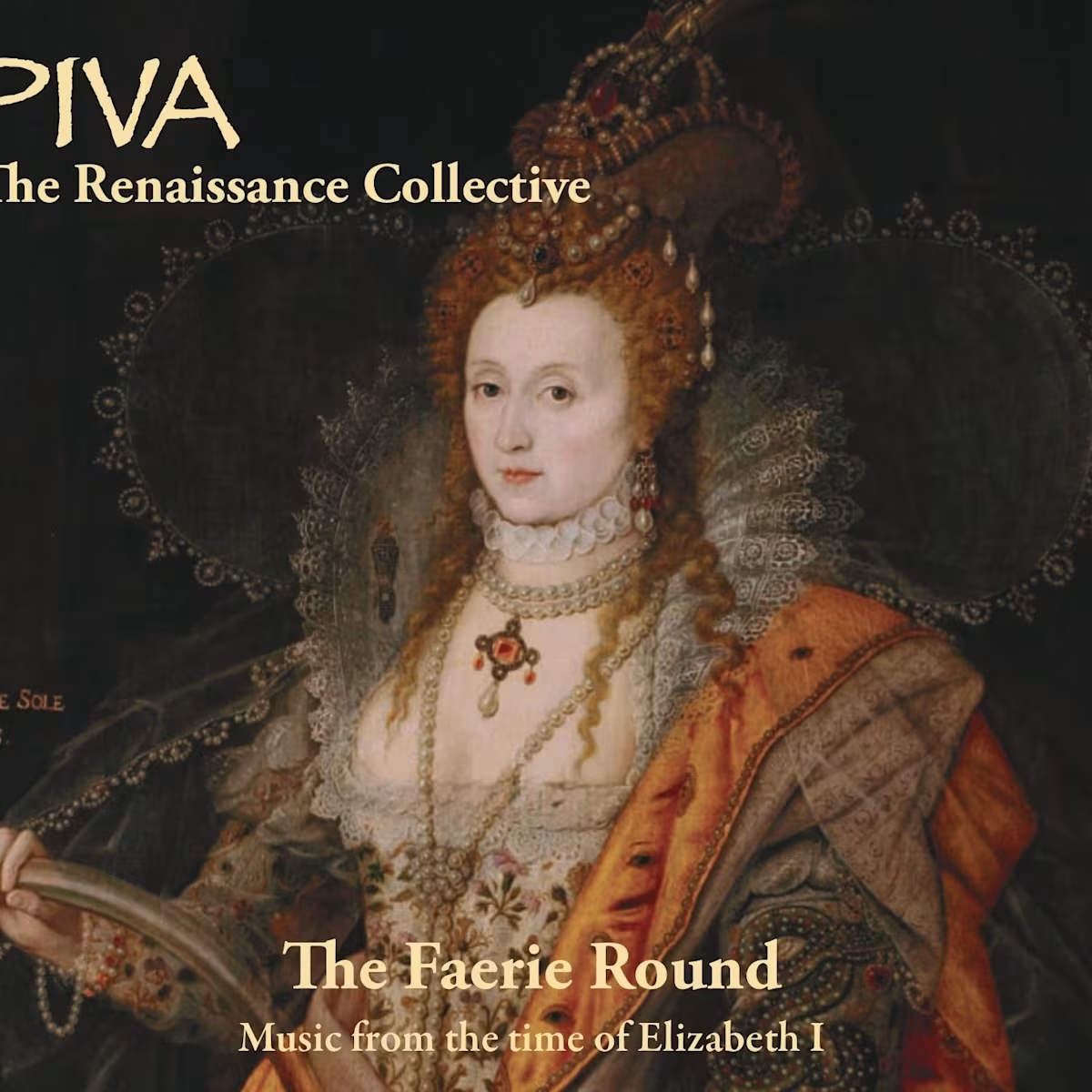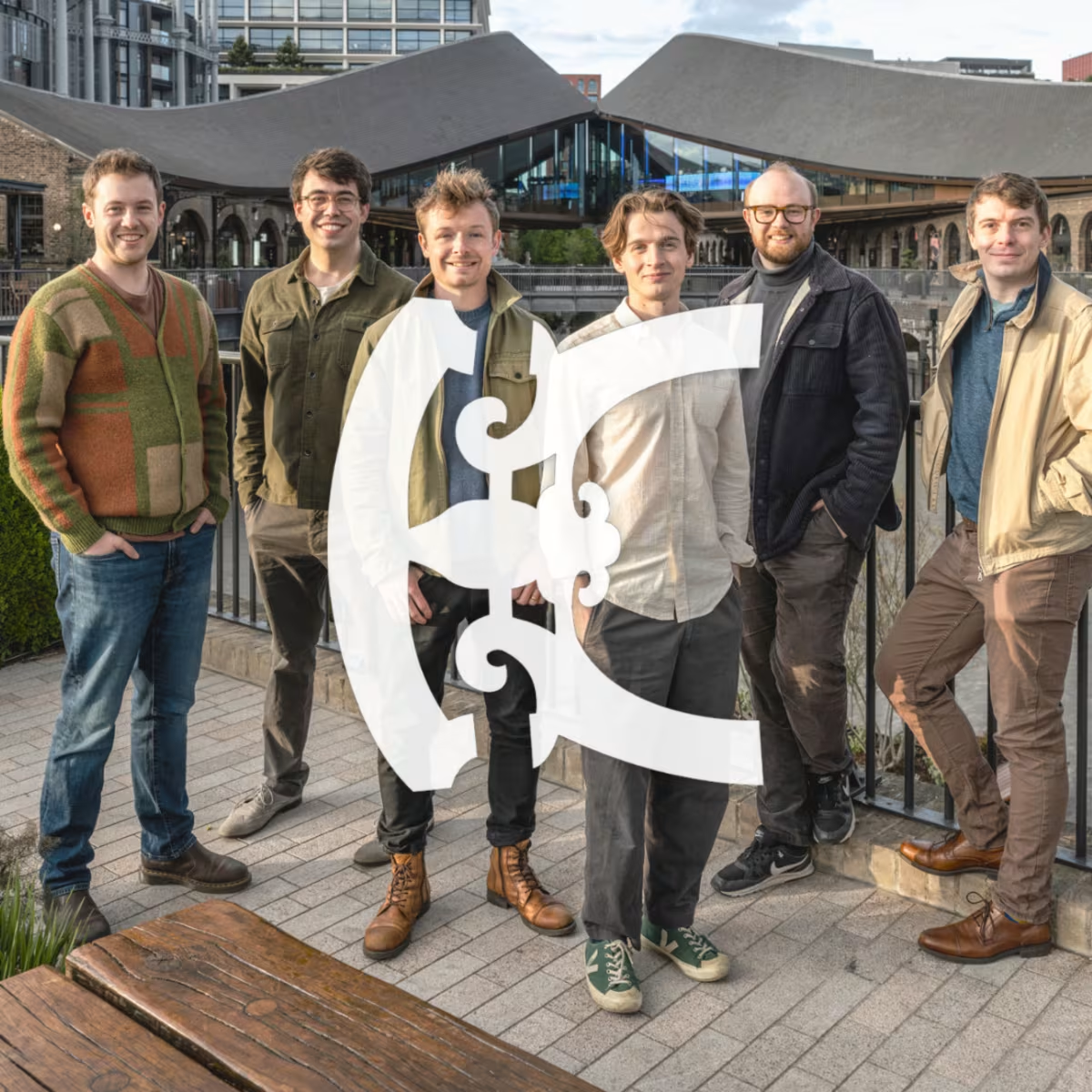Feature
The Other Chandos Anthems
Early Music and the love of discovery
Share this

FIRST PUBLISHED 28 JUL 2024
Robert Rawson, of The Harmonious Society of Tickle-Fiddle Gentlemen, writes about the inspiration behind their album, Johann Christoph Pepusch: Chandos Anthems, for Continuo Connect. Although the title Chandos Anthems frequently brings to mind Handel, these anthems were composed in 1719 by Pepusch, a Berlin native who became the Director of Music at the Duke of Chandos' estate, Cannons. Pepusch's work for James Brydges, Duke of Chandos, reflects the grandeur of the Cannons estate, built in Middlesex between 1713 and 1724, and subsequently razed with its contents dispersed in 1747.
Where it began...
One of the things that lured me into the world of early music during my undergraduate days was the element of discovery. The shelves of archives across Europe seemed to creak under the weight of forgotten gems and every week or two another recording of music by a composer I had never heard of before would appear in record shops. That's when I thought: 'I want to do that!' In 2006, together with some other friends in London's busy early-music scene, we created The Harmonious Society of Tickle-Fiddle Gentlemen with a focus on overlooked and never-before-recorded repertoire. With generous support from Continuo Foundation, we released our fifth commercial CD in November 2023: Pepusch's 'Chandos Anthems' on the Accent label.

The Harmonious Society of Tickle-Fiddle Gentlemen
Like so many good ideas, our band was born over a meal (in London), followed by some 'refreshments' and some playing. I remember that we played only French music that night (once you start, it's hard to stop!). We were generally bemoaning the fact that too much of the regular concert series of the 'big' baroque groups in London was dominated by a handful of 'greatest hits'—excellent, but over-played, repertoire. We decided to set up a group that would focus on overlooked repertoire, particularly music for early concert life in London and music from central Europe. We started planning repertoire for our first concert—but we still needed a name. With our interest in music for early concert life in London, I went into the British Library and started digging. I came upon Ned Ward's 1709 The Secret History of Clubs and there I found it, a description of one of the first public concert series in London, described as 'a Harmonious Society of Tickle-Fiddle Gentlemen'. I rang harpsichordist David Wright, admitting that this was an outrageous suggestion, and he said something like 'it is so ungainly and strange that we absolutely have to use it!' We've been explaining it ever since.
We played our first concert back in 2006 in Greenwich and the entire programme was mostly unknown or rarely performed music: Stanley, Prelleur, Geminiani, Pepusch, Finger and perhaps some Handel. I can't remember exactly, but I'd be surprised if the audience outnumbered the performers. Things slowly improved after that, getting more and bigger concerts and finally playing live on BBC Radio helped us get a breakthrough with a record label (the wonderful Ramée label). One of the pieces that really surprised us in that first concert was Pepusch's Concerto in B flat for violin and strings and that sent me back into the archives. Like so many musicians, Pepusch was a name I associated with two things: The Beggar's Opera and a large number of competent, but rather unremarkable, solo and trio sonatas; but detailed research, primarily in the UK and Germany, revealed a new composer to the group — and ultimately to the public. This helped the 'revelation' element of our first CD Concertos and Overtures for London. The subject of our next disc, Venus and Adonis, is too big to be dealt with here, but it was nothing short of a major hit and brought us to the stages of many of Europe's major festivals and radio stations. I had a few other ideas for Pepusch recordings for the future, but these plans were affected by the sad passing of the Czech viol player Petr Wagner—one of my dearest friends. We had discussed the idea of a collaborative recording of Finger's dramatic opera The Virgin Prophetess and we performed it in Prague. When the subject came up with Accent after Petr's passing, they were particularly interested in another Pepusch disc (to my surprise!) and I had several ideas at hand.

Pepusch at Cannons
There was no shortage of pieces to choose from amongst Pepusch's music for Cannons, but as with the concertos disc, I wanted to choose the very best. With well-known composers you can get by with middle-of-the-road works, but with lesser-known composers, every piece needs to impress. This meant a thorough study of dozens of manuscripts, scribes and other sources. Although not on the grand scale of later oratorios like Messiah, by English standards of the 1710s, these pieces required a large group: at least 13 or so instrumentalists, a minimum of seven adult singers and either a chorus of trebles or adult women ripienists. I was very fortunate in putting the recording project together because the discovery element also appealed to a number of extremely fine players and singers ('Oh, I had no idea anyone else composed anthems for Cannons—count me in!'). Although we are all busy performing the major works of the repertoire throughout the year, discovery still remains a major attraction for performers and for audiences alike.

In the context of British sacred music of the baroque era, the emphasis on occasional works (royal odes for coronations and so on) and Handel's later oratorios has given us an inaccurate picture of Anglican church music in the early eighteenth century. After 1689 only the organ was permitted in official Anglican church music, that is, liturgical music. Handel's anthems for Cannons ought to have struck us as more unusual is this regard; their impact, however, is somewhat undermined by the volume and success of his oratorios and occasional works—and in the world of recordings, concerts and radio broadcasts, they all tend to get lumped tougher. Once I started going down the rabbit-hole of music at Cannons (Handel, Pepusch and Haym), I quickly realised some fundamental differences between Pepusch and Handel that had echoes in Venus and Adonis, namely, his use of the otherwise distinctly Venetian scoring of solo trumpet, oboe with strings and continuo.
In short, Pepusch brought the same approach to his theatre music and his sacred music. We are used to that in Handel's (much later!) oratorios, but Pepusch's footprints are very easy to follow here. The reason that Handel (also Nicola Haym) and Pepusch were able to compose church music with instruments for services was because the Duke's chapel was private and therefore not subject to the restrictions set out by William III in 1689. When he started to recruit musicians in late 1715, James Brydges was England's richest man—and a lover of all things Italian. His musicians were primarily drawn from the opera house and theatres in London and were mostly foreigners. This was also the case with composers: first the Roman-born Nicola Haym (from 1715), Pepusch (from 1716) and then Handel (1717–1718). Brydges also commissioned works especially for his chapel; at first (from 1716) for the church of St Lawrence's Whitchurch (then part of his estate) and then from 1719 in his private chapel in Cannons itself. In 1776 Sir John Hawkins noted that he also 'engaged the first masters of the time to compose anthems and services with instrumental accompaniments in the manner of those in the churches of Italy’.

Any relation to Handel's anthems?
The main question I get asked about Pepusch's Chandos anthems is, 'how are they different from Handel's?'. Readers may have noticed that Handel's anthems are now generally called 'Cannons Anthems'; and that is because James Brydges did not become Duke of Chandos until after Handel had composed all of them. As such, Pepusch's are the only accurately-named Chandos Anthems. Pepusch's models were strikingly different from Handel's. Just as he had done at Drury Lane around 1715–1717, Pepusch looked to Vivaldi for his main inspiration. Handel reacted to the tastes of the British public in very subtle ways (for example, generally avoiding recitative is his church music) whereas Pepusch leaves us with the impression that he was going to convince the British public to embrace modern Italian music, come what may. Pepusch retains both secco and accompanied recitative in most of his Chandos Anthems and, much more than Handel's anthems, leans on instrumental and vocal virtuosity.
This point about virtuosity is a really important one because Anglican church music at the time was very conservative and virtuosity was generally shunned. Take Pepusch's Magnificat, for example; he approaches it in a completely Italian way (the Magnificat is an exception in Pepusch's anthems for Cannons because there is no recitative, but that was an existing Venetian tradition), dividing the text up into 'numbers' like one hears at the opera house. Like Vivaldi, Pepusch was coming to sacred music primarily as a concerto composer—and you can hear this in several places. Listen to the stunning 'For behold from henceforth' with Nick Mulroy's beguiling tenor solo over the driving 6/8 motif in the strings which takes to the air when the tutti voices enter on the word 'all'. You could be forgiven for thinking that the unison motto at the start of 'He hath put down the mighty from their seat' was the opening of a Vivaldi concerto.

It's beginning to look a lot like Christmas…
The other large-scale work on this Pepusch disc is the Christmas anthem 'Rejoyce in the Lord', the sole manuscript bearing the caption heading 'done at Cannons on Xmass day'. This is, perhaps, one of the most remarkable pieces of church music of its time for several reasons. First, there was very little Christmas music (and what survives is very modest) and among what remains, there is none on such an extravagant scale in terms of length, style or scale. Perhaps even more remarkable is that several parts sound strikingly Handelian, such as 'The swelling floods together roll'd'— remarkable because the Handel works that this evokes had not yet been composed. If we let go of the myth that the two German immigrants were rivals, then we see the opportunities for exchanges of ideas. Pepusch's Venus and Adonis (1715) was a clear model for Handel's Acis and Galatea (1718), but the former's influence seems to have continued at Cannons; to such an extent that the overture from Pepusch's marriage ode for the Duke re-appears in the 1732 version of Handel's Il Pastor Fido.
The last anthem on our new disc is much smaller in scale than the others (four voices, two cellos and continuo), reflecting the Duke's more straightened financial circumstances after he lost much of his fortune in the South Sea Bubble in 1720. It's full of striking colours and ingenious imitation, but what really struck us in the recording sessions was the movement 'O praise the Lord, for the Lord is gracious'. This movement, with a completely different scoring, appeared in one of Pepusch's first anthems for Canons in 1716, but newly imagined here for two countertenors and bass (sung with breathtaking beauty by the total dream team of Alex Potter, Hugh Cutting and Edward Grint) with two solo cellos (in all their chocolaty scumminess) played by Henrik Persson and Gavin Kibble. The world of Anglican church music would have been foreign to both Handel and Pepusch and both appear to have had a look at Purcell's music for the Chapel Royal to get some inspiration and sense of tradition. This is probably the most Purcellian piece by Pepusch and forms a striking contrast with his much more theatrical approach in the other works on the disc. This is the late-night anthem on the disc!
Continuo Foundation and a post-Covid rebuild
The TFG (as we say) has been lucky to have a string of successful world-premiere recordings, and this has enabled us to bring otherwise unknown music to the public; not only through the recordings, but their success has also enabled us to bring this to concert audiences across Europe and the UK. When in-person concerts started up again in 2021, promoters were, understandably, relying heavily on tried-and-trusted repertoire. We made our return at the Festival Oude Muziek in Utrecht in August 2021 (that's a story in itself!), but needed help getting going after that. A grant from Continuo Foundation helped make this recording of Pepusch's Chandos Anthems a reality and got our name and music back into the public eye/ear once again—and it worked wonderfully! Within a few months of release, our disc was included in the Holiday Gift List on the NPR nationally-syndicated radio programme (USA) and then Editor's Choice in Gramophone in January 2024, it also received a nomination for the coveted Preis der deutschen Schallplattenkritik, glowing reviews in BBC Music Magazine, Fono Forum (Austria) and others. It has also enjoyed radio play across Europe, the UK and the USA. BBC Radio 3 featured a complete performance of 'Rejoice in the Lord' on Record Review (Hannah French noting that ''Pepusch takes his lead from the Italians, with more than a taste for the dramatic […] Magnificent sacred music inspired by Lotti and Vivaldi"). We appeared at the York Early Music Festival in December 2023, a concert described in BBC Music Magazine as among 'the best concerts in the UK this Christmas', with further concerts in Dorset and at the Canterbury Festival.
You can buy the recording from Presto Music or stream from your usual source.
Author: Robert Rawson
Share this
Keep reading

Beethoven revisited
Violinist Jacqueline Ross reflects on her evolving relationship with the composer’s violin sonatas, and her research-led project, ‘Beethoven Revisited’.

The Faerie Round: Music from the time of Elizabeth I
PIVA – The Renaissance Collective’s third album features dance and ballad music from late Elizabethan England.

Playlist: The Gesualdo Six
This playlist explores The Gesualdo Six's extensive discography, featuring some new works commissioned by the group, alongside a wide range of early music.


